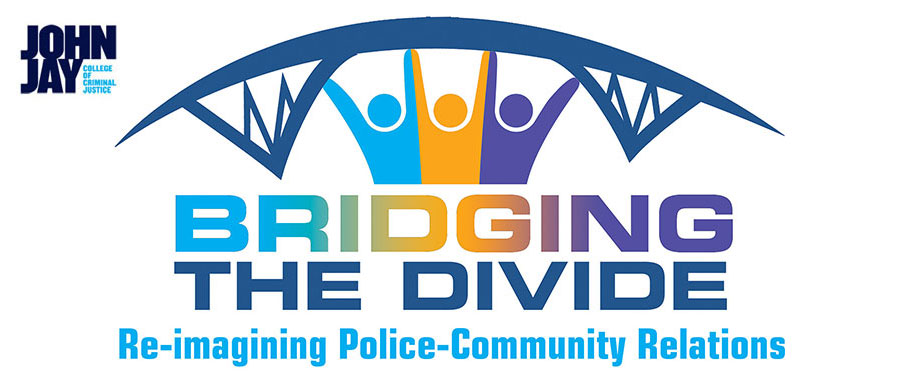THE ROLE OF JOHN JAY COLLEGE IN FRAMING ISSUES OF JUSTICE
For the last fifty years, John Jay College has played an integral role in the shaping and framing of issues around criminal and social justice, nationwide. John Jay College is hailed as among the nation’s pre-eminent institutions for liberal arts and criminal justice studies. The college was founded in the 1950s, conceived as an institution to address relations between the police and communities they serve. As per its mission, John Jay promotes inclusion and diversity and is committed to providing education to underrepresented groups. As such, the college is uniquely positioned to facilitate a nation-wide dialogue on issues of race, justice and policing.
Recognizing the important role played by our faculty, students and administration in contributing to scholarship such issues, President Jeremy Travis has announced a year-long initiative, entitled Bridging the Divide: Re-imagining Police-Community Relations. The initiative seeks to engage a diverse group of stakeholders from various disciplines and backgrounds in inclusive, constructive, public discourse on best practices for improving relations between law enforcement and the communities they serve. Guided by a mandate to “educate for justice,” the John Jay College community will leverage the expertise and experiences of faculty, staff, students and the larger community, to explore the challenges faced by communities and members of law enforcement that often serve to inhibit constructive engagement.
A committee, drawn from the John Jay community has been established to guide the initiative. This committee is comprised of scholars and professionals, representing a wide range of disciplines and areas of expertise. Their research will be evidence-based, informed by best practices and focused on devising effective strategies for influencing policing policy.
While the Bridging initiative represents the first of its kind at John Jay College, just last fall, in collaboration with the Open Society Foundations, the college hosted a workshop themed, Bridging the Great Divide: Can Police-Community Partnerships Reduce Crime and Strengthen Our Democracy? The workshop focused on exploring the role of police-community partnerships as a means of enhancing safety and reducing violence. Its outcomes highlighted the importance of building legitimacy and evaluating how new policing practices can serve to enhance democratic principles of equality, opportunity and civic engagement. The Bridging the Divide initiative will assess both historical and contemporary forces impacting on our criminal justice system that contribute to the current troubling disjuncture. Discussions, informed by research, will discuss effective policing practices and community perspectives on best practices for ethical police-community engagement.

